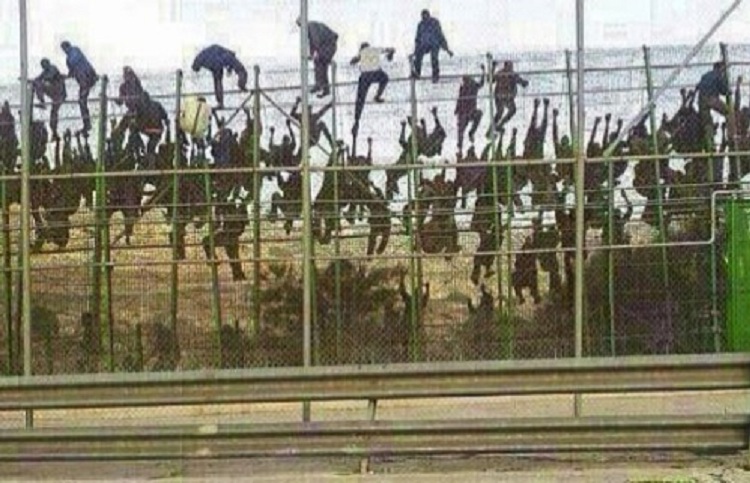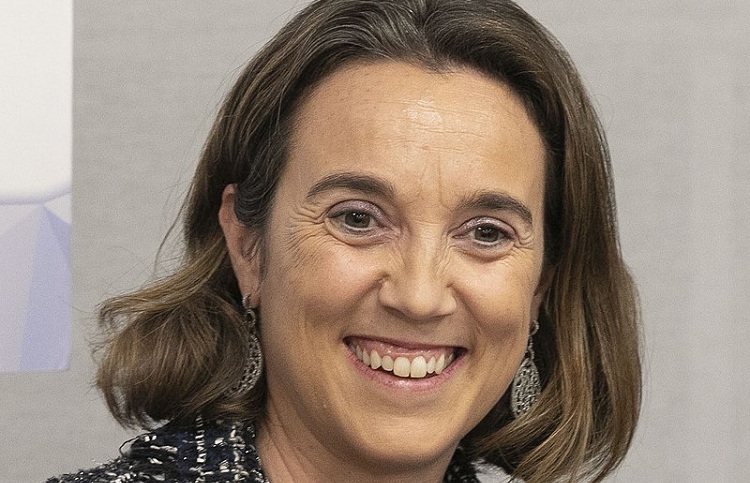The Diplomat
From the UN to Podemo, partners in the Spanish government, there has been a succession of calls for an investigation into the serious incidents that took place last Friday at the Melilla fence, which resulted in 23 sub-Saharan Africans dead, according to official Moroccan figures, and 37, according to various NGOs.
On Tuesday, the secretary general of the United Nations, Antonio Guterres, in a message on Twitter, joined the voices of his organisation that described as “unacceptable” the “excessive use of force” by the Moroccan and Spanish authorities during the assault on the fence.
Asked by journalists about what happened in Melilla, the spokesman for the organisation’s general secretariat, Stéphane Dujarric, said: “Since you are asking me about it, I want to express, using a term we have used before, how shocked we are by the images of the violence we have seen on the border between Morocco and Spain, in North Africa, over the weekend (…) which, once again, has resulted in the deaths of dozens of human beings, of asylum seekers, of migrants”.
“We have also seen the use of excessive force by the authorities, which must be investigated because it is unacceptable,” insisted Dujarric, who held both countries responsible for the deaths and the violent actions, adding that this disproportionate use of force could be observed “on both sides of the border”.
The UN High Commissioner for Human Rights, the UN Committee for the Protection of Migrant Workers and the Parliamentary Assembly of the Council of Europe have also called for an investigation to be launched “immediately” to find out more details of what happened.
In Spain, Podemos, partners in the government of Pedro Sánchez have in recent hours intensified their demands for an investigation, and the Minister for Social Rights and leader of the purple party, Ione Belarra, sent a letter to the heads of Foreign Affairs, José Manuel Albares, and Interior, Fernando Grande-Marlaska, in which she calls for an “independent investigation to clarify what happened”. In addition, it demands that they show the “maximum transparency” that, it says, the government should display in this matter, especially “about the actions carried out by the Moroccan security forces”.
“We believe it is especially important that the recordings of all the cameras located in the area on Spanish territory on 24 June, as well as all the communications made and received, be kept immediately and with all the guarantees,” the minister said.
At the European level, Sira Rego, an MEP for Unidas Podemos, together with 50 other MEPs, yesterday presented an initiative for the European Commission to investigate the jumping of the fence in Melilla and to “establish responsibilities” for what happened.
In a letter addressed to the EU High Representative for Foreign Policy, Josep Borrell, and the Commissioners for Home Affairs and Neighbourhood Policy, Ylva Johansson and Oliver Varhelyi, respectively, the MEPs state that the Melilla episode is part of a situation of “constant violation of human rights in Morocco”, in the framework of migration policies supported by the European Union and its Member States.
“This is not the first time we have seen such episodes at the external borders of the EU, in particular at the Moroccan crossing point. There are frequent cases in which the security forces on both sides of the border use violence to prevent people from reaching European territory”, denounces the letter, which, apart from pointing out the violence used by Morocco, points out that there are images that show that Spain allowed the entry of Moroccan forces to carry out “hot returns”.
Precisely on this point, the Spanish Minister of the Interior responded yesterday in Parliament to EH Bildu by describing as “falsehoods” that Moroccan gendarmes crossed into the Spanish side. He said: “It is a proven fact that Moroccan gendarmes entered Spanish territory. Falsehoods of this kind, unless there is proof, I suggest that you do not repeat them”, replied Grande-Marlaska to the MP Jon Iñarritu. Last Saturday, the newspaper Público published a video in which three gendarmerie agents can be seen on Spanish soil, proceeding to arrest some of the migrants who crossed the fence, while Guardia Civil agents are close by.
For his part, the president of the government, Pedro Sánchez, said in an interview on Cadena Ser that “we have to be empathetic with those who jump the fence, but also with our police and the Moroccan gendarmes”.
Sánchez claimed that when he said last Friday that the crisis of the Melilla fence jumping had been “well resolved”, he had not seen the images in which the dead immigrants were seen piled up.






